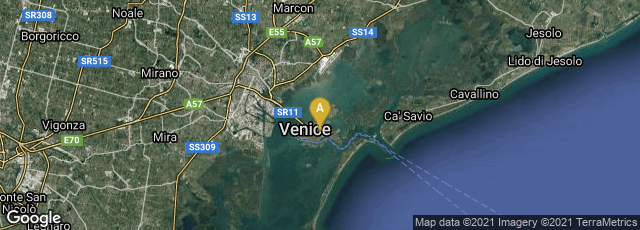

Painting by Robert Thom of Nicolas Jenson working at his engraving desk. From the series, Graphic Communications Through the Ages. Preserved in the Cary Graphic Arts Collection at Rochester Institute of Technology.
In September 1480 printer and typographer Nicolas Jenson (Nicholas Jenson) died in Venice. His detailed will made provisions for the continuation of his printing business, and is therefore significant for the history of printing. Among Jensen's bequests were his punches and matrices for casting type fonts. His will is the first concrete reference in a document of the existence of matrices for casting type fonts, as there were no manuals on printing published until the seventeenth century. The relevant section reads, in English translation:
"Item: the said testator does declare and certify, that if his company, Zan of Cologne and Nicolas Jenson, will choose to take over all the furniture, the clothing, the bed coverings and the household stuff as well as the tools, the presses, and all else pertaining to the art of book printing, and the material on hand, and likewise all else belonging to the said testator that is mentioned in the bond of partnership of the prior company and which at his decease shall be, and be found, in his dwelling, all of these things shall be appraised and at this worth the said company, Zan of Cologne and Nicolas Jenson, shall take and hold all these properties, with this provided, that they shall be held to pay of this price for these goods and chattels, to the heir of the testator, five hundred ducats out of hand and the remainder shall be set in the account owed to the testator which he does carry with the firm, Nicolas Jenson and Company.
"The said testator has declared and does declare that in all and each of the above premises naught shall be read or understood to include the punches with which the matrices are stamped, from which matrices the letters are in turn wrought and fabricated, for he did and does except completely these punches and did and does will that Messer Peter Ugelleymer, his dearest friend, shall have them, and he does devise and bequeath them to the said Messer Peter. And Messer Peter cannot be held to give or pay aught for these same punches unless it shall so please him of his generosity.
"Yet if this Company does not choose to accept these goods and chattels at the worth aforesaid, then Messer Peter shall be held and bound to receive and take these goods and chattels at one hundred ducats less than the price aforesaid, and Messer Peter shall pay the moneys thus, to wit: four hundred ducats of gold out of hand to the heir of said testator, the remainder to go and be computed in the deduction, or in part thereof, which the testator shall make to the company aforesaid, Nicolas Jenson and Company, with this provision, that if Messer Peter likewise will not choose to take these goods and chattels, as aforesaid, then neither shall he have the testator's punches."
The quotations are from the Will of Nicolas Jenson, translated into English by Pierce Butler of the Newberry Library in November, 1928. Ludlow printed the will and sent it out customers as a promotional piece, including the statement "[Set] in a trial font of sixteen point Nicolas Jenson, a new type designed by Ernst Detterer, interpreting as faithfully as possible the original roman type of Jenson, and printed in a limited edition on Rives paper by the Ludlow Typograph Company of Chicago in the month of November, 1928."
♦ Jenson's punches and fonts were purchased by Andrea Toressano, d'Asola (Andreas Torresanus, de Asula, Andrea Asolano), father-in-law of Aldus Manutius.